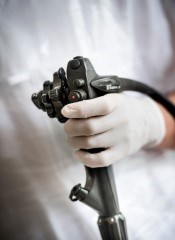The general syllabus on which you were admitted states how many credits you need to take during your doctoral education to meet the degree requirements. Örebro University offers doctoral courses but you can also choose to attend courses at other universities or institutions. You will find the University's doctoral courses here.
When you attend and pass a course given by Örebro University, your credits will automatically be registered in the study documentation system Ladok. However, if you attend and pass a course given by the University Library, you must apply for credit transfer (more information about credit transfer follows below).
You may also attend courses at other universities or institutions, in Sweden or abroad.
Below you will find links to doctoral courses at faculties of medicine at other universities in Sweden.
Important to remember is that if you attend courses outside of Örebro University you need to apply for a credit transfer after you finished the course in order for it to count towards your future doctoral degree.
Along with a properly filled-out application you must also submit a certificate of your participation, as well as a course syllabus or similar. Submit your application to the study and research administration, alternatively to the Records Office at the university.
Note that it is always individually assessed whether or not an application is approved (completely or partly).
According to "Guidelines for credit transfer for the subject areas of Medical Science, Disability Science and Sport Science" (ORU 1.2.1-06176/2017), an application for credit transfer for courses/thesis work completed prior to admission shall be made in connection to establishing the doctoral student’s first ISP (Individual Study Plan). For courses completed whilst on the doctoral programme, an application for credit transfer should be made no later than at the time of the next ISP revision.
The study and research administrator forwards the application to the specialisation coordinator/head of subject who reviews and makes the relevant decisions. If the specialisation coordinator/head of subject is of the opinion that the course for which credit transfer has been applie, does not fall within the scope of third-cycle courses and study programmes, the application shall be rejected. On rejection, the decision must include the grounds for the decision.



